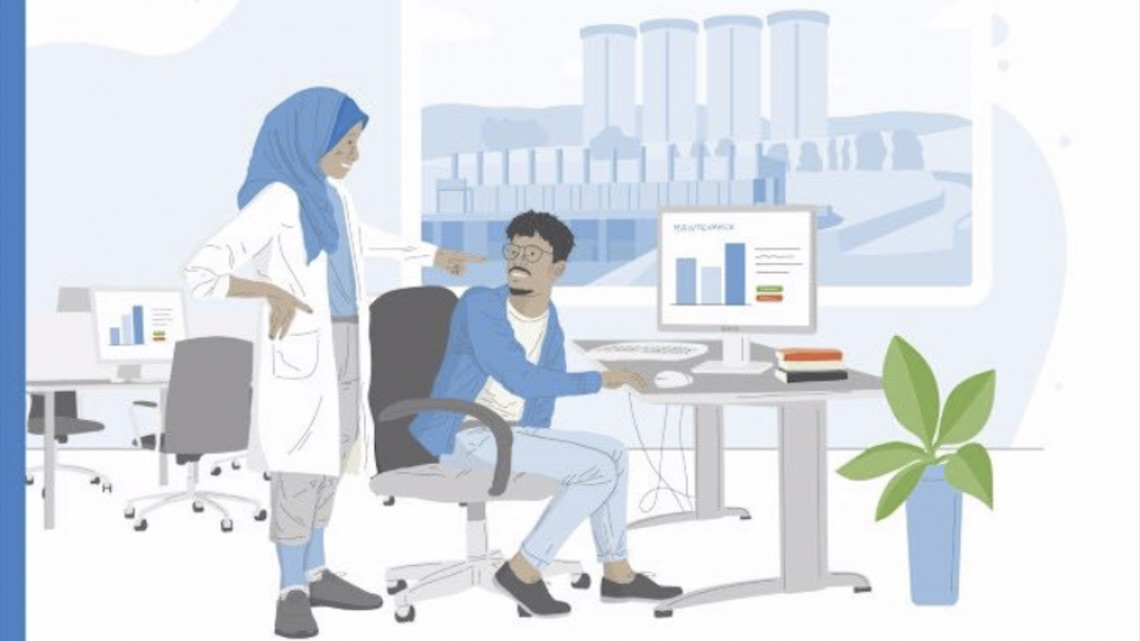Iraq: building engineering capacity for sustainable hydraulic infrastructure management
23 March 2022

MOSUL, 23 March 2022 – In partnership with Vienna’s University of Natural Resources and Life Sciences (BOKU), the United Nations Industrial Development Organization (UNIDO) and the Government of Austria are working together to strengthen Iraq’s technical education at the tertiary level. The project will enhance the capacities of the University of Mosul to provide high-quality education in hydraulic engineering. A virtual kick-off ceremony saw the participation of Oskar Wüstinger, Austria’s Ambassador to Jordan and Iraq, and staff members of the University of Mosul and Vienna’s BOKU, amongst others.
Anmar Abdulaziz Majeed Ali Al-Talib, Head of the Department of Dams and Water Resources at the University of Mosul, thanked all the entities engaged in the project and underlined the importance of cooperation with international universities such as BOKU to allow the University of Mosul to become a regional academic leader in hydraulic infrastructure management.
Bayar Jaafar Al-Sulyvani, Dean of the University’s College of Engineering, highlighted the importance of the efforts to refurbish the university’s laboratory, which is central for its research activities. This laboratory was seriously damaged during the conflict with the Islamic State, and the project will ensure that all the necessary equipment will be purchased and installed to ensure that the laboratory can function.
UNIDO project manager, Stavros Papastavrou, described how the collaboration between UNIDO and the University of Mosul has been strengthening since 2019. He also remarked on the importance of the partnership between the two universities which are situated in countries with very similar water resources (the Tigris River in Iraq and the Danube River in Austria) but with different socio-economic contexts; thus, creating a unique opportunity for knowledge sharing.
Professor Helmut Habersack from BOKU, who is the UNESCO Chair on Integrated River Research and Management, expressed his hope that, through this project, it will be possible to establish the foundations for unique future research engaging both institutes.
BOKU’s Professor Michael Tritthart presented the different activities that BOKU will be engaged in.
The project will provide targeted capacity-building activities, including specialized training for Geographic Information Systems (GIS) and hydraulic and flow modelling software. It will also develop a curriculum on fundamentals and applications in hydrodynamics for the Department of Dams and Water Resources, and realize training of trainers, and activities to promote women in engineering.
A representative of the management of the Mosul Dam, explained how the collaboration with another UNIDO project with Iraq’s Ministry of Water Resources would allow the involvement of engineering students in work done at the dam. Mosul Dam, built in the 1980s, is the largest dam in Iraq. It generates hydroelectricity and provides water for downstream irrigation.
In his remarks, Ambassador Wüstinger pointed out how this project will contribute to the effective management of Iraq’s water resources by enhancing the University of Mosul’s capacities to train young engineers who in the future would be involved in the management of the countries’ water resource infrastructures. He underlined the importance of effectively managing water resources in the current context where “water is life but its availability is limited”. He also mentioned the importance of this initiative to contribute to three Sustainable Development Goals: SDG 9 (industry, innovation and infrastructure), SDG 13 (climate action), & SDG 7 (affordable and clean energy).
Virpi Stucki, in her closing remarks, described UNIDO’s approach in this project: “UNIDO’s approach is one of building bridges. Building bridges between countries, between institutions, between projects, and between people. This is the key factor which will drive the successful implementation of this project and the achievement of its planned outcome: empowering through education the Iraqi youth, and in particular women, to be the best versions of themselves.”
For more information, please contact:
Davide De Prosperis, Project Associate, UNIDO